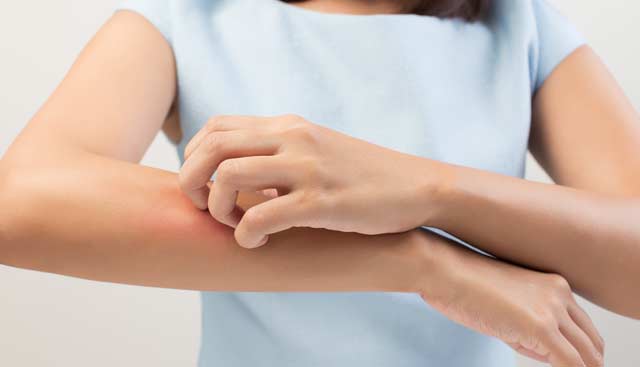
It’s Mosquito Season – Protect Yourself by Choosing the Best Bug Spray for You
Throughout the balmy summer months, insects are out in full force. When you’re spending time outside, it’s important to protect yourself from being bitten by disease-carrying mosquitoes, ticks, flies and other bugs, which can transmit viruses like dengue, Chikungunya, West Nile and Zika, as well as Lyme disease and Rocky Mountain spotted fever.
When possible, a good strategy is to avoid being outdoors when biting insects are most active, which is typically right before sunrise and around sunset. Also, note that mosquitoes tend to appear in droves immediately after rain. That’s because female mosquitoes lay dry eggs that require water to become activated and hatch. As such, many dry mosquito eggs are hatched into life by rain showers.
The best way to protect yourself from bites is to cover up with clothing and apply an insect repellent to exposed skin before heading outside. However, it’s important to note that not all products provide the same level of protection. In general, the most effective repellents contain one of three active ingredients – DEET, picaridin or plant-derived chemicals, such as oil of lemon eucalyptus.
The Centers for Disease Control and Prevention (CDC) recommends using an Environmental Protection Agency (EPA)-registered mosquito repellent. When used as directed, these repellents have been shown to be safe and effective for most everyone, including pregnant and breastfeeding women.
Here are some general tips on how to maximize the safety and effectiveness of an insect repellent:
- Thoroughly read the label – Be sure to carefully follow all directions for using the product.
- Don’t spray your face – Instead, spray the repellent into your hands and then carefully rub it onto your face, avoiding your eyes and mouth.
- Spray exposed skin only – Do not apply repellents underneath your clothing or to wounds or irritated skin.
- Reapply – Be aware that low-concentration repellents provide only a few hours of protection. Also, if a mosquito bites you after your first application, you may need to apply a different type of repellent for more comprehensive protection.
- Treat clothing – You can spray your clothing, backpacks and tents with permethrin, which is suitable for this purpose but should not be applied to the skin as an insect repellent.
- Help your child – Do not allow young children to apply repellents themselves.
Of course, most insect repellents are pesticides, and you may have questions about their safety. Following an extensive review, the EPA has approved the use of DEET as an insect repellent. However, some studies suggest that this powerful substance may affect some of the body’s cells in unintended ways.
If you’d like to discuss insect repellents and their possible health implications with an expert at Moffitt Cancer Center, you can request an appointment by calling 1-888-MOFFITT or completing a new patient registration form online. We do not require referrals.
